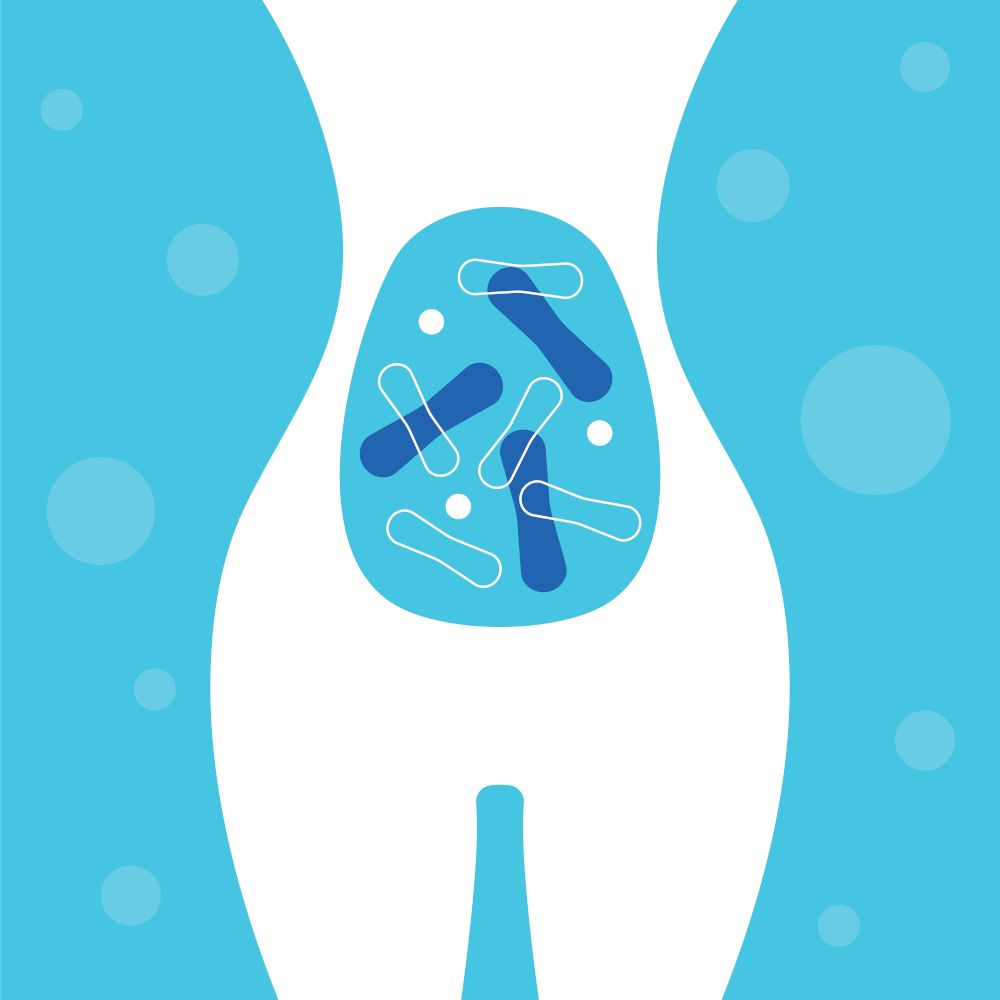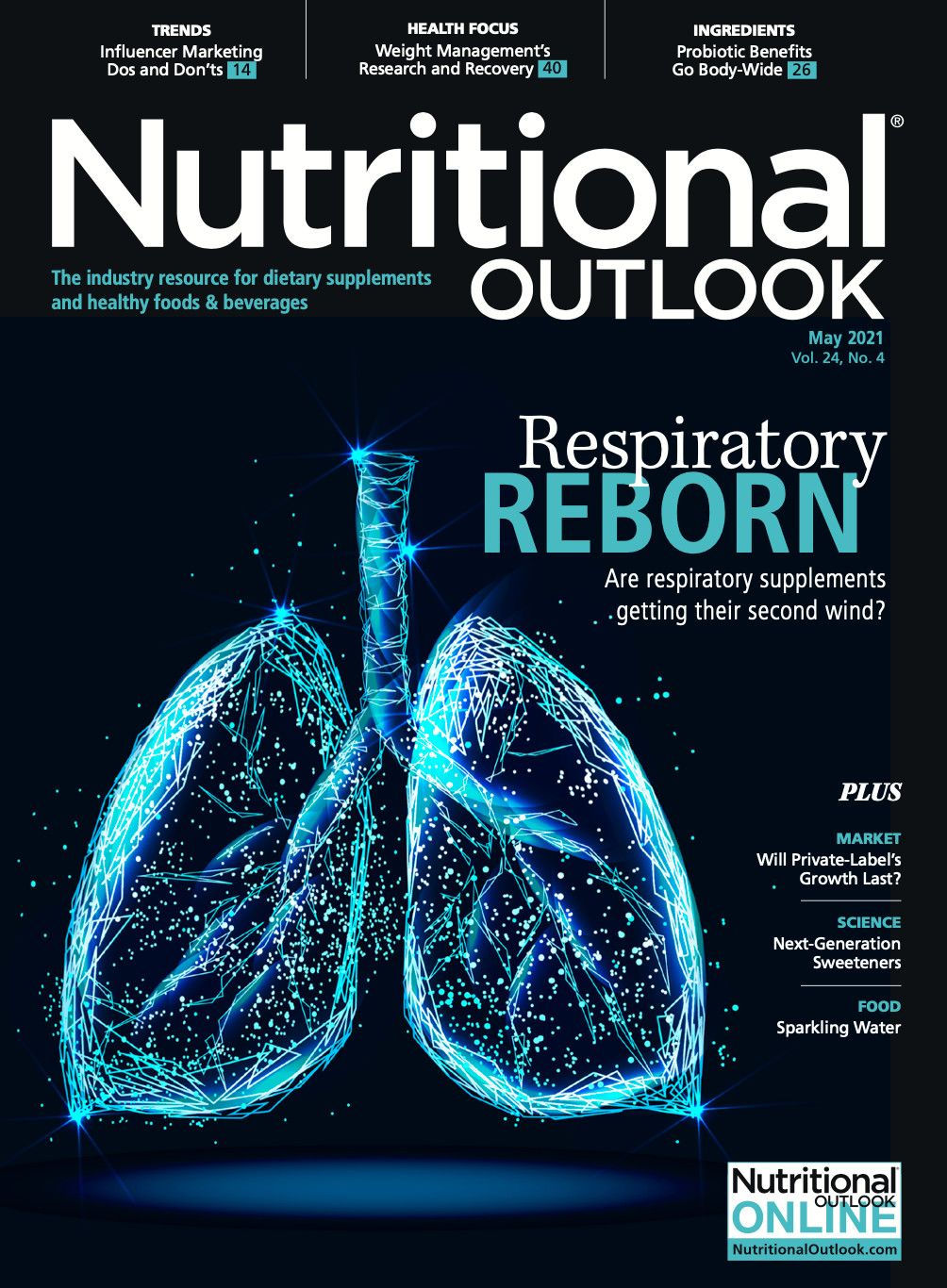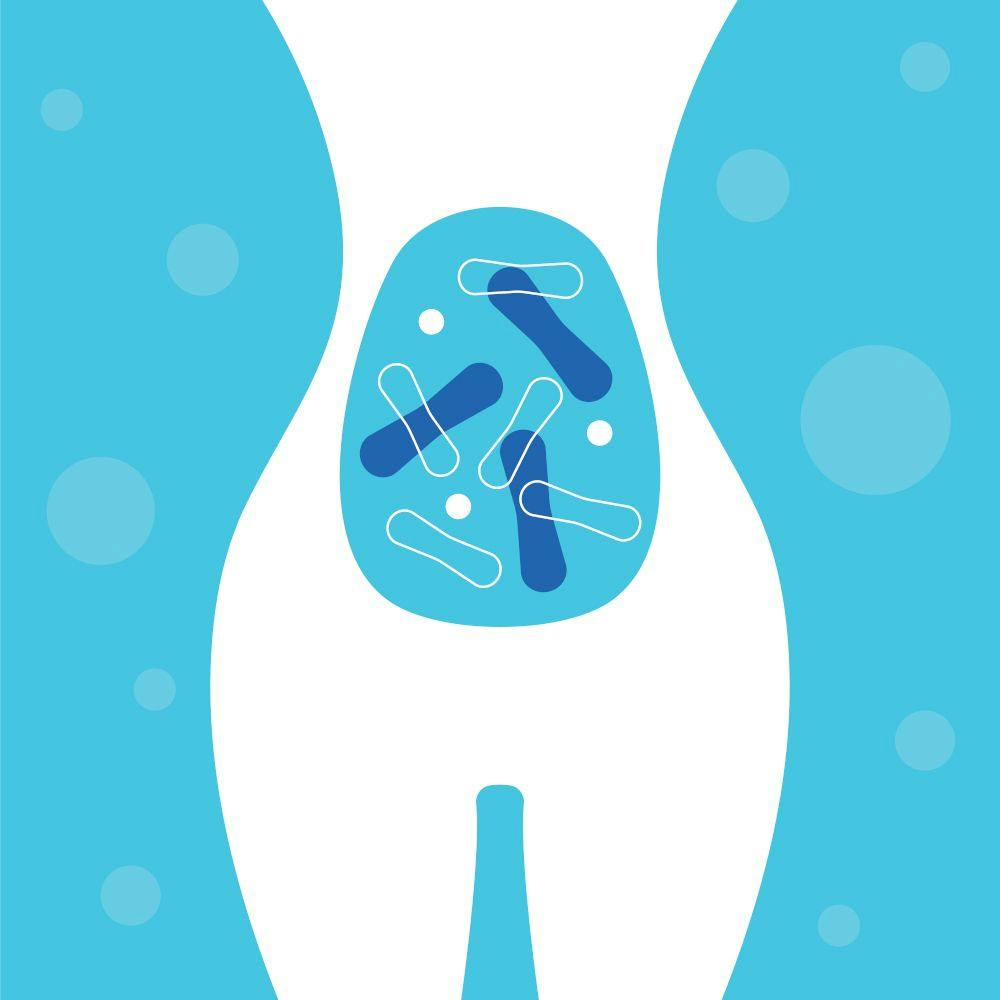Beyond the gut: Probiotics’ benefits go body-wide
Researchers are actively investigating how probiotics influence numerous aspects of human health.
Photo © Tomozina1 - Stock.adobe.com

“Good gut bugs.” As a marketing moniker, the euphemism’s been pretty advantageous for probiotic bacteria. Summarizing their marquee benefit in a snappy shorthand, it gives consumers a tagline they can digest, commit to memory, and return to when deciding what sort of supplement regimen to adopt.
And make no mistake: Consumers are adopting probiotics. Meticulous Market Research projects compound annual growth of 6.7% for the category from 2020 to 2027, bringing the global market to an impressive $76.7 billion in value by 2027.1
But by locating probiotics’ benefits solely in the gut, the good-gut-bug shorthand sells the microbes short. As George Paraskevakos, executive director, International Probiotics Association (IPA; Los Angeles), says, “While it’s true that much foundational probiotic research focused on digestive benefits, as scientists uncover more about the role of microbes in, on, and all around, they’re broadening their research scope to look into benefits beyond the gut.”
That’s a signal to supplement brands to broaden their understanding of just how much power probiotics have, and how much potential they have to revolutionize formulations, and human health, as the science unfolds.
It Begins with the Biome
As far as unfolding science goes, Vaughn DuBow, marketing manager for capsules and health ingredients, North America, Lonza (Greenwood, SC), believes that research around the human microbiome—all the microbial strains that reside within and function as part of us—has enabled “our entire understanding of probiotics.”
In fact, he credits microbiome research not just with “uncovering probiotics’ established benefits but uncovering the world of potential they may one day have.”
That potential, adds Jennifer Montgomery, probiotics marketing lead, Americas, for IFF Health (New York City), lies in the recognition that “almost every aspect of health is, in some way, connected to the bacteria in our gut, although their exact mechanisms of action are still under investigation.”
As research proceeds, she predicts, “We’ll understand the health benefits of our current strains even better and identify further probiotic strains that benefit health categories like metabolic health, brain health, vaginal and urinary-tract health, skin health, and more.”
Our Strains, Ourselves
Already, we’re learning how probiotics influence systems in ways that would have seemed unimaginable a few years ago.
For example, says Lucie Lingrand, international product manager, Lallemand Health Solutions (Mirabel, Canada), “The oral cavity, like the gut, harbors a rich and complex microflora unique to everyone.” Those resident oral strains can act as antagonists against opportunistic microorganisms, she continues, helping to maintain oral immunity and overall health.
Similarly, our dermal microbiota has attracted attention that’s generated evidence of how probiotics benefit skin health. “Specific strains in the gut,” Lingrand says, “trigger a chain reaction that communicates with the skin”—establishing, in effect, a “gut-skin axis.”
There’s even a gut-liver axis: When the microbiome is in a state of dysbiosis, Lingrand explains, “Metabolic reactions linked to liver health can be disrupted. More publications are showing a beneficial probiotic effect on liver health through the microorganisms’ effect on this gut-liver axis.”
Follow the Science
To get a clearer picture of just how far these potential health benefits extend, Paraskevakos suggests looking at probiotic clinical-trial registries.
The development of new technologies and clinical endpoints has fostered a research environment wherein probiotic studies “are flourishing,” he says. Thus, it’s no surprise that an analytical review2 of two clinical-trial databases published last year found 1,600-plus clinical probiotic trials concerning more than 700 different indications, he says.
What’s more, of the 250 clinical probiotic studies registered between January and September 2020, Paraskevakos goes on, only 28% looked at gut health, and only 16% considered immunity—arguably the runner-up to gut health as probiotics’ highest-profile benefit. “The rest of the studies,” he says, “were divided between metabolic syndrome and other conditions, such as necrotizing enterocolitis, skin health, mental health, and women’s health—all of which are areas generating more studies and interest from health professionals and consumers alike.”
Follow the Consumer
And consumers are tuning into the research. As Elodie Ruffin, digestion and gut health market manager, Gnosis by Lesaffre (Lille, France), says, “Consumers today seek out the science behind everything they consume. With probiotics especially, they’re learning about specific strains’ health benefits, and they’re looking for those strains in products.”
Lingrand agrees, citing data from Lumina Intelligence Worldwide showing that 2020 saw a 244% increase in online reviews of probiotic products targeted at children’s health, and a 133% increase in reviews for women’s health products. Moreover, FMCG Gurus’ 2020 probiotic survey of 1,000 U.S. consumers found that 18.8% were in the market for products promising mental well-being, 15% had stress relief in mind, 17.1% turned to probiotics for heart health benefits, and 14.2% were choosing probiotics for vaginal health.
Sam Michini, vice president of marketing and strategy, Deerland Probiotics & Enzymes (Kennesaw, GA), notes that with COVID-19 heightening consumers’ health concerns overall, the market for probiotics’ wider-ranging benefits “has been booming” even more.
“Experts are urging probiotic supplement makers to tweak their messaging to open the doors to these emerging sectors,” he says. And persuading consumers to step through shouldn’t be a heavy lift. “Probiotics already have an outstanding reputation for digestion and immunity,” Michini says, “so when consumers see credible science backing up newer claims, they don’t need a lot of convincing to try them for other health and well-being needs.”
Think About It
Consider claims around stress—which Montgomery notes is “a common occurrence for 65% of adults, who report experiencing some form of it in their daily lives.”
To address the issue, IFF recently launched Howaru Calm (Lacticaseibacillus paracasei Lpc-37), the latest addition to the company’s Howaru family of probiotics and its first marketed for brain health.
In a recent clinical trial3, the probiotic helped significantly reduce perceived stress in adult subjects vis-à-vis a placebo. Moreover, Montgomery adds, the product helps balance mood and supports overall mental well-being.
“That’s a big development for dietary supplements—giving consumers a scientifically proven way to help manage daily stress by taking a probiotic,” she says.
Meanwhile, the strain combination of Lactobacillus helveticus R0052 and Bifidobacterium longum R0175 that Lallemand markets as Cerebiome has been the subject of cognitive and mood-related research for years.
In a recent development, a post-hoc analysis4 published last year confirmed that the psychobiotic product significantly increased serum levels of brain-derived neurotrophic factor (BDNF) in human subjects relative to both a placebo and prebiotic supplementation.
“Serum BDNF levels are lower in depressed patients and increase after a long course of antidepressant treatment,” Lingrand notes. “So the results in the probiotic group inversely correlate with depression severity compared to placebo.”
Good Sports
Sports performance is another active research area. In 2019, the International Society of Sports Nutrition even published a position statement recommending that athletes supplement with probiotics, “as the science has proven that they boost athletes’ natural defenses, support gut-barrier integrity, increase antioxidant capacity, decrease occasional stress through the gut-brain axis, and improve amino acid absorption,” Lingrand notes.
Several existing studies, for instance, show that Lallemand’s Lafti L10 (Lactobacillus helveticus Lafti L10) boosts biomarkers of improved immunity in athletes, she says, with results of another recent post-hoc analysis5 hinting at the strain’s antioxidant potential in 22 elite male athletes.
“Market trends report that it’s not just trained athletes but a growing number of active amateurs who include sports nutrition supplements in their diets,” Lingrand says. “The science behind these ingredients has enhanced probiotics’ popularity for these needs, as they confirm demonstrated health benefits for active people.”
Lonza’s DuBow notes that research6 has demonstrated that the ratio of certain microbes in elite athletes differs not only from the ratio found in sedentary people but from that of “average” weekend warriors, too—“and that these differences can be seen in countless groups, helping us understand how to effectively modulate the gut microbiome to impact a specific benefit,” he says.
In response, Lonza launched TWK10, a novel probiotic (Lactobacillus plantarum TWK10) extracted from Taiwanese kimchi and supported by two clinical trials examining athletic performance7,8.
“The studies found that participants receiving the sports probiotic increased exercise endurance by up to 75% while also improving body composition—more muscle, less fat,” DuBow says. The results also revealed a relationship between the company’s probiotic and higher circulating blood glucose levels during exercise, indicating more energy available for performance.
Metabolic Matters
DuBow adds that the probiotic’s effect on blood glucose “suggests that there may be other benefits of the strain for us to research relating to glucose metabolism, insulin sensitivity, and more.”
And indeed, probiotics are building a track record for their effects on improved metabolism and even cardiovascular health. Case in point: After 43 healthy adult subjects in a recent clinical trial9 involving Deerland’s Bacillus subtilis DE111 strain consumed 1 billion CFU of the probiotic daily for four weeks, researchers observed a statistically significant 9.14% increase relative to placebo in their reactive hyperemia index—a measure of blood flow reflecting improved endothelial function.
According to Deerland’s Michini, researchers also observed reductions in total and non-HDL cholesterol levels, which they believe the probiotic may have altered via its production of beneficial short-chain fatty acids. “Propionic and butyric acid manage healthy cholesterol metabolism by inhibiting the synthesis of liver cholesterol,” he says, “resulting in decreased LDL levels.”
Best Defenses
What with all these new findings grabbing the headlines, it would be easy to assume that probiotic research into gut function and immunity had come to a stop. But it hasn’t.
Two recently published studies reported that children who took Deerland’s DE111 probiotic had statistically significant improvements in gastrointestinal outcomes like vomiting, hard stools, and discomfort compared to children receiving a placebo10.
In another study, eight weeks of supplementation with the strain also produced “distinctive modulation” of the microbiome’s firmicutes/bacteroidetes ratio in young recipients, indicating healthy gut function11.
“In 2019,” Michini says, “children’s probiotics saw phenomenal growth of 24.6%, according to Nutrition Business Journal’s Condition Specific Report, and while this growth may be unsustainable in a category unto itself, there are huge opportunities for probiotics crossing into other categories.”
Paraskevakos also follows the immune space. The International Probiotics Association recently funded a review12 published earlier this year exploring the connections between the microbiome, our immune systems, and viral exposure.
“Each of these themes is a complex topic to tackle,” he says. “But the totality of evidence suggests that the microbiome and the tools we have to manipulate it—particularly probiotics—impact our vulnerability to, and the severity of, viral infections.” In light of the recent pandemic, he says, the potential to position probiotics as adjuvants to vaccines and other treatments “is very promising.”
Are consumers ready for all this? “It can take time for scientific evidence to reach the mainstream,” Paraskevakos says. “But we have no reason to doubt that as evidence for probiotic benefits expands, so, too, will demand for probiotics that provide those benefits.”
References
- Meticulous Market Research Pvt. Ltd. “Probiotics Market by Strain (Bacillus), by Product Type (Dairy Food {Yogurt}, Baked Food, Animal Feed), by Form (Liquid), by Sales Channel (Super Markets, Pharmacies), by End-User (Human {Adults, Senior}, Animal), and Geography — Global Forecast to 2027.” Published March 2021.
- Dronkers TMG et al. “Global analysis of clinical trials with probiotics.” Heliyon, vol. 6, no. 7 (July 17, 2020): e04467
- Patterson E et al. “Lacticaseibacillus paracasei Lpc-37® improves psychological and physiological markers of stress and anxiety in healthy adults: A randomized, double-blind, placebo-controlled and parallel clinical trial (the Sisu study).” Neurobiology of Stress. Published online November 24, 2020.
- Heidarzadeh-Rad N et al. “Effects of a psychobiotic supplement on serum brain-derived neurotrophic factor levels in depressive patients: A post hoc analysis of a randomized clinical trial.” Journal of Neurogastroenterology and Motility, vol. 26, no. 4 (September 30, 2020): 486-495
- Michalickova D et al. “Effects of probiotic supplementation on selected parameters of blood prooxidant-antioxidant balance in elite athletes: A double-blind randomized placebo-controlled study.” Journal of Human Kinetics. Published online October 15, 2018.
- Clarke SF et al. “Exercise and associated dietary extremes impact on gut microbial diversity.” Gut, vol. 63, no. 12 (December 2014): 1913-1920
- Huang WC et al. “Effect of Lactobacillus plantarum TWK10 on exercise physiological adaptation, performance, and body composition in healthy humans.” Nutrients, vol. 11, no. 11 (November 19, 2019): 2836
- Huang WC et al. “The beneficial effects of Lactobacillus plantarum PS128 on high-intensity, exercise-induced oxidative stress, inflammation, and performance in triathletes.” Nutrients, vol. 11, no. 2 (February 7, 2019): 353
- Trotter RE et al. “Bacillus subtilis DE111 intake may improve blood lipids and endothelial function in healthy adults.” Beneficial Microbes, vol. 11, no. 7 (November 15, 2020): 621-630
- Slivnik M et al. “Effect of daily Bacillus subtilis DE111® intake on gastrointestinal health and respiratory infections in children attending day-care: a randomized, parallel, double-blind, placebo-controlled study.” Journal of Probiotics & Health, vol. 8, no. 4 (2020): 225
- Paytuvi-Gallart A et al. “Daily intake of probiotic strain Bacillus subtilis DE111 supports a healthy microbiome in children attending day-care.” Beneficial Microbes, vol. 11, no. 7 (November 15, 2020): 611-620
- Harper A et al. “Viral infections, the microbiome, and probiotics.” Frontiers in Cellular and Infection Microbiology. Published online February 12, 2021.





















